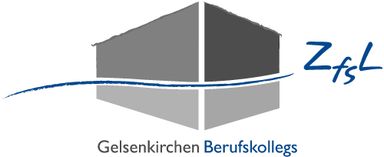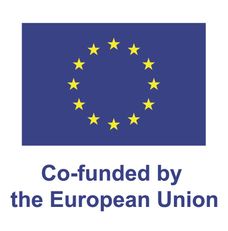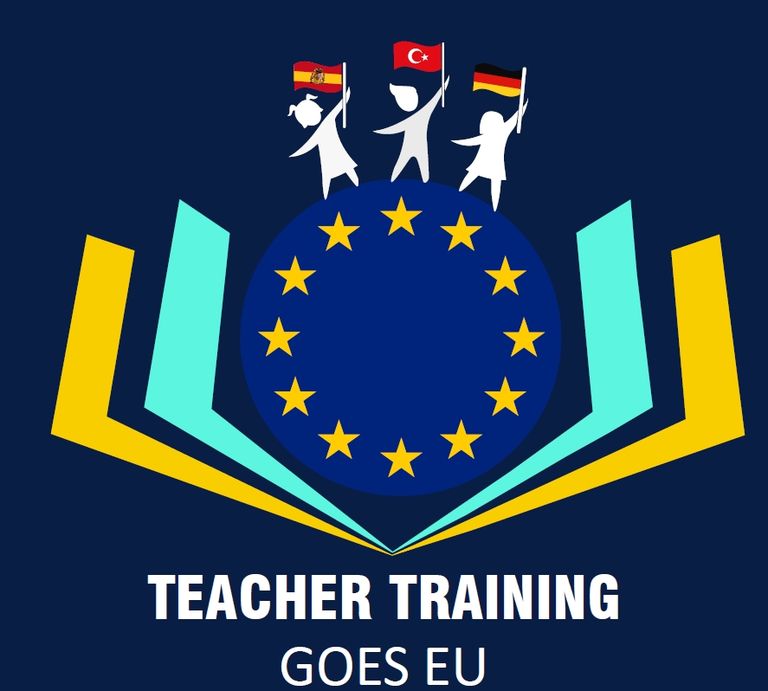
One of the central objectives of the Erasmus project is to develop hybrid teaching-learning arrangements for students with learning difficulties in the context of teacher training. The aim is to prepare trainees and newcomers to the teaching profession accordingly and to enable individualisation of teaching through the use of digital tools and hybrid learning formats.
The training didactic considerations and concepts for teacher training can be found in the chapter Concepts for Teacher Training
In this section, exemplary learning situations developed by the trainees are presented. The focus of these teaching sequences is not to merely increase the motivation of the students through an abundance of digital tools, but to enable an individualisation of the teaching in the sense of in-depth learning.
This requires a targeted analysis and documentation of the learning abilities of the different learning groups at the beginning.
Trainees`Results
Below, we summarize our students and trainees`results.


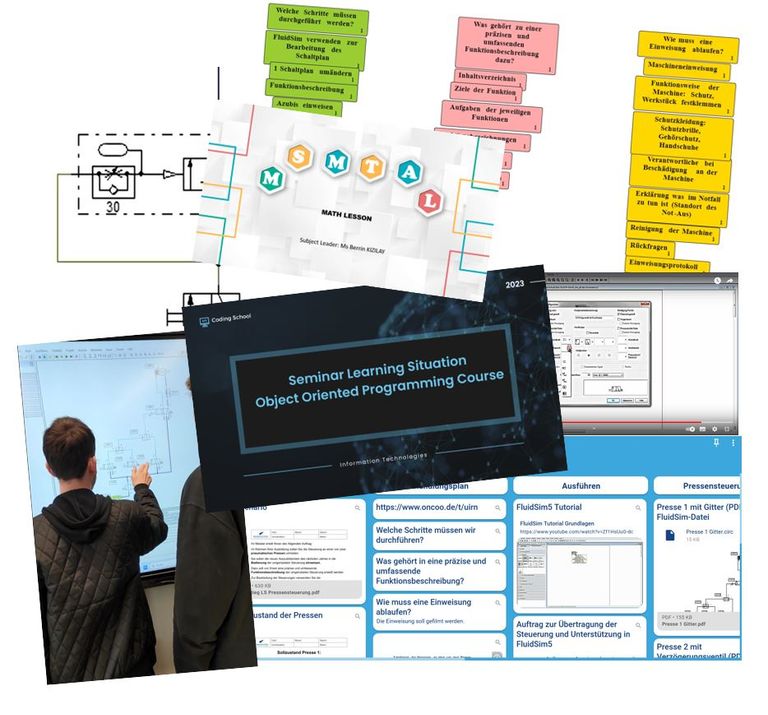
With regard to the use of digital tools, we believe that they should essentially fulfil 3 functions:
- Enabling the organisation of learning and working processes in the classroom / orientation and guidance
- Internal differentiation in the information about new and unknown subject-related content and processing
- Enabling differentiated learning outcomes in the context of in-depth learning.
The following pages provide an insight into learning situations. The central didactic and methodological considerations are presented in excerpts.
Hybrid learning in a class of metalworkers in the first year of training
A tool for designing differentiated lessons
Analysis of a Technical Drawing
The learning situation presented here from the field of mechanical engineering illustrates how a student-centred, self-organised and collaborative work process can be organised in lessons with the help of a digital media concept. In addition to a platform for organising the entire work process (Padlet), a concept board (conceptbord.com) is used as a work platform and a helpdesk to support pupils with learning problems. The analysis of the current level of competence and the intended further development of the pupils is done with the help of a learning structure grid (cf. the separate presentation in this section).
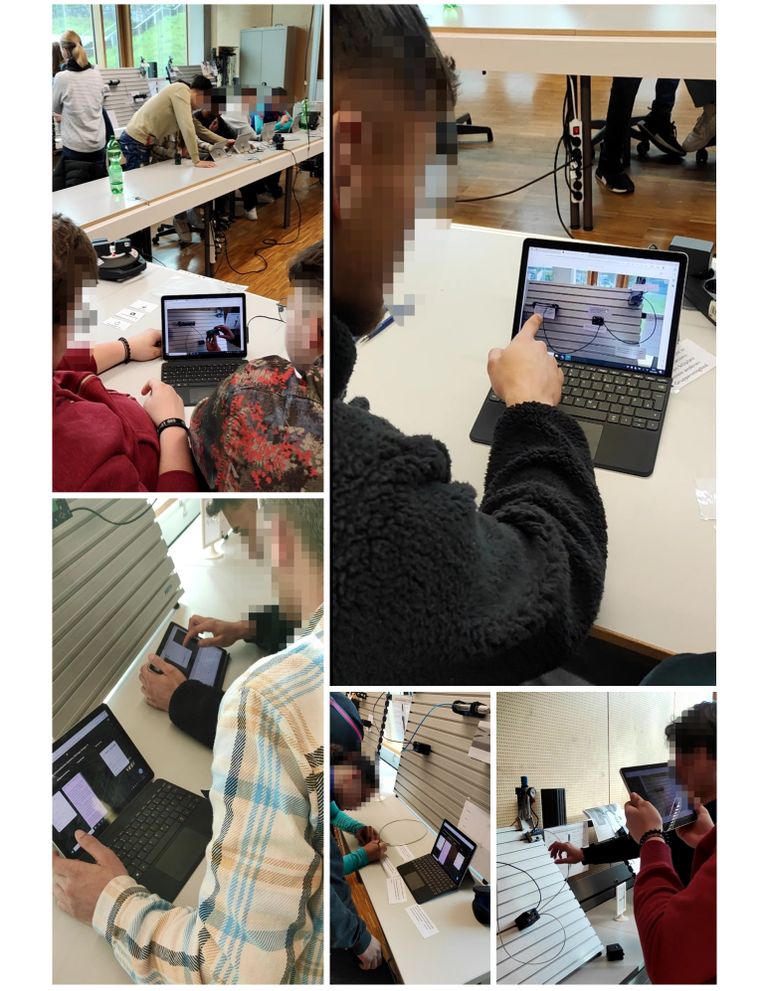
The lessons presented here were developed within the framework of the Erasmus project at Max-Born-Berufskolleg in Recklinghausen for a class of vocational school. The students have achieved a school leaving certificate at a low qualification level at a general education school in Germany. All of them have not succeeded in finding an apprenticeship in the dual system due to their low level of qualification. The vocational school aims to impart basic knowledge in the vocational field of metal technology to the students in one school year and to enable them to obtain a higher school leaving certificate at an intermediate qualification level.
The central approach is to use digital tools for the necessary differentiation in the classroom.
More information about this didactic approach can be found here:
The lesson plan presented here shows how intercultural competences can be promoted in foreign language lessons (here in Dutch). The learners adopt perspective (foreign) cultural interpretation patterns in the professional world by using the brochure "Cultuurverschillen in het buurland" from the German-
Dutch Euregio Association and interaction situations
in the form of station training to develop their functional
communicative sub-competence of speaking and (their
culture-independent openness of thought and, in a broader
sense) their intercultural competence to act.
More information can be found here:
Promoting Intercultural Competences in the Subject Dutch as a Foreign Language
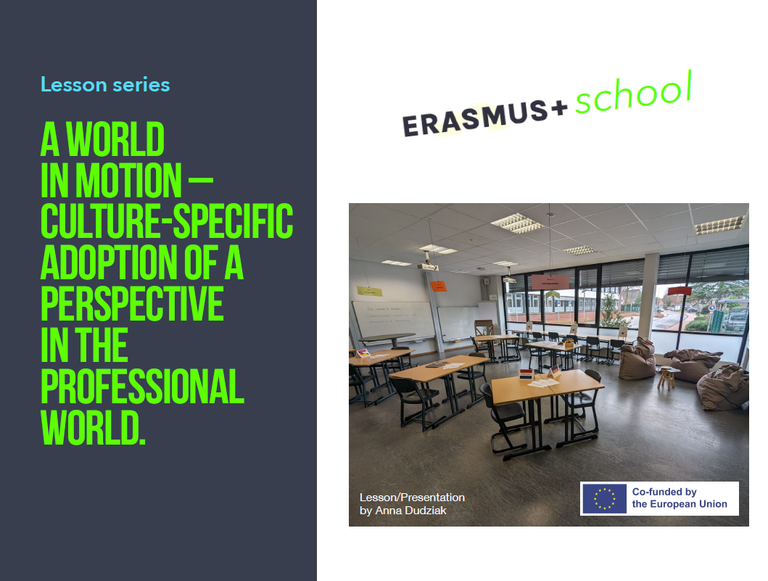
Funded by the European Union. Views and opinions expressed are however those of the author(s) only and do not necessarily reflect those of the European Union or the European Education and Culture Executive Agency (EACEA). Neither the European Union nor EACEA can be held responsible for them.
Wir benötigen Ihre Zustimmung zum Laden der Übersetzungen
Wir nutzen einen Drittanbieter-Service, um den Inhalt der Website zu übersetzen, der möglicherweise Daten über Ihre Aktivitäten sammelt. Bitte prüfen Sie die Details und akzeptieren Sie den Dienst, um die Übersetzungen zu sehen.
